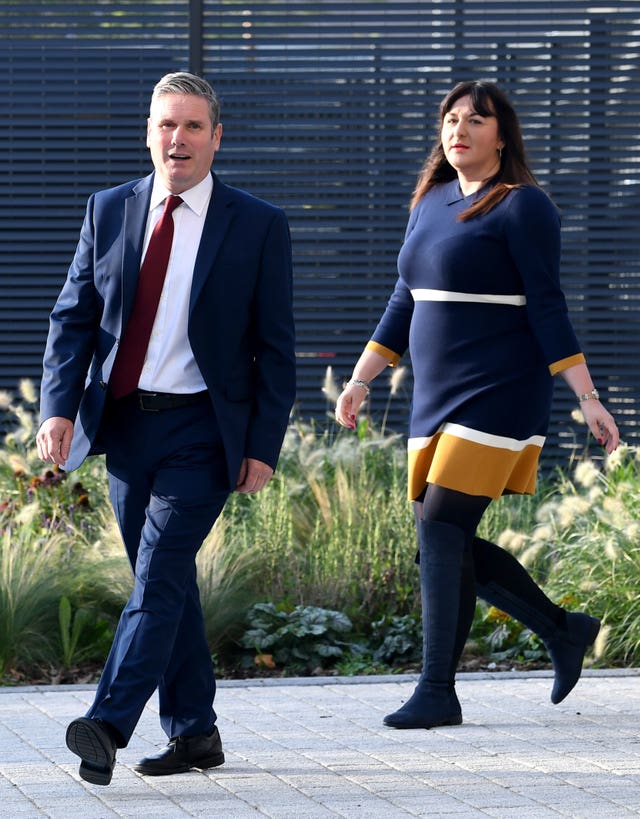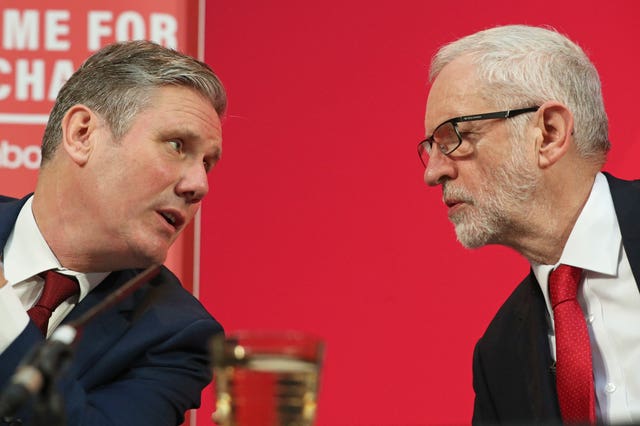In a new speech, Keir Starmer has made clear that Labour is under “new management”. At the same time, however, it’s reportedly the case that leadership pledges he made earlier this year have already been abandoned:
What about his fifth pledge, on common ownership of rail, mail, energy and water? Lisa Nandy says public ownership is "one way" and "another way" is "giving people more control" #PoliticsLive
— Sienna Rodgers (@siennamarla) September 22, 2020
Red Wall
Starmer’s choice of warm-up act left little doubt that his keynote speech was an attempt to make a clean break from the Jeremy Corbyn era of the Labour Party. The introduction was given by Ruth Smeeth, a Jewish ex-MP who clashed with Corbyn over alleged anti-Semitism.
Smeeth lost her seat in Stoke as the so-called “Red Wall” crumbled last year and heartland voters deserted Labour. Data has shown Brexit to be the most decisive issue in why this happened. Starmer notably led the way for Labour to abandon its position of respecting the 2016 referendum and support a new public vote on Brexit.
Labour deserved to lose in 2019. An honest assessment of why includes those responsible for our Brexit policy. Hasn’t happened. But perhaps all this manic flag-waving is trying to overcompensate for his stint as Lord Mayor of Remainia 🤷🏻♂️ https://t.co/vaPcXpXvHf
— Matt Zarb-Cousin (@mattzarb) September 22, 2020
“Keir has already demonstrated that our party is under new management but let’s be clear – the country needs new leadership”, Smeeth said.
Starmer, who served in Corbyn’s shadow cabinet, said the party has to “get serious about winning” – the implication being Labour has not been focused on electoral success in the past. This is contrary to members of the Labour right reportedly working against Corbyn to scupper any chance of an electoral victory in 2017.
“When you lose an election in a democracy, you deserve to,” Starmer said – not mentioning the impact of Labour’s move away from respecting the 2016 referendum.
Now, after four election defeats in a row, Labour is finally becoming a “competent, credible opposition” and “deadly serious about victory”, he said.

Trust
In a direct attack on Corbyn’s leadership, Starmer said:
Never again will Labour go into an election not being trusted on national security, with your job, with your community and with your money.
That’s what being under new leadership means.
This talk of trust comes as several of his recent leadership pledges have allegedly been quietly discarded:
Labour have looked at the polls, the state of the country & the state of politics & come to the conclusion that what voters really, really like is a lying worm who says one thing to get elected & then the minute he gets in ditches all his promises & lurches further to the right. https://t.co/VTkwInBovE
— Ally Fogg (@AllyFogg) September 22, 2020
There was no mention of Corbyn by name but tellingly Starmer did praise three previous Labour leaders – Clement Attlee, Harold Wilson, and Tony Blair – who all won elections. He didn’t mention that Labour actually began losing support among the working classes under Blair.
Starmer points to 45, 64 & 97 saying Labour win by looking to future. Imitating Wilson by trying to achieve a balancing act between left and right through appeals to future & technology.
Not a bad idea but this is 2020, not 1964, & you need *political* solutions to big problems.
— Aaron Bastani (@AaronBastani) September 22, 2020
Starmer finished his speech, delivered in Doncaster, with a plea to voters who have turned away from Labour to “take another look” at the party, promising that he shared their values and “we love this country as you do”.

He said:
To those people in Doncaster and Deeside, in Glasgow and Grimsby, in Stoke and in Stevenage, to those who have turned away from Labour, I say this: we hear you.
Instrumental
Starmer was instrumental in steering Labour’s policy on Brexit, which meant going into the general election promising a second referendum – a move which put the party at odds with some of its previously loyal voters in Leave-supporting areas.
“The debate between Leave and Remain is over,” Starmer said. “We’re not going to be a party that keeps banging on about Europe”.
But he said Boris Johnson has “repeatedly promised that he will get a deal” with the European Union and if he does not succeed “he will be failing Britain”.
Criticism
Starmer has come in for some criticism for his speech:
All the feeble ‘tough talk’ on spending. All the ‘rule Brittania’ kitsch. All this minoritarian, uninspiring, Westminster-centric drivel. All so drearily predictable. I hope we’ll see an end to those humiliating “the left must support Starmer” pieces. It really mustn’t. https://t.co/ClrrQeMNE4
— Richard Seymour (@leninology) September 22, 2020
How long do you give it before Keir Starmer tries to get an endorsement from Gordon Brown’s bigoted woman
— The Poisonous Euros Atmosphere Fan (@DawnHFoster) September 22, 2020
People have also criticised Labour for adopting Tory rhetoric in a manner which has backfired before – notably under Ed Miliband:
It's depressing that the opposition doesn't realise that by repeating your opponent's frame (nationalism, family values etc), you don't steal their votes, you just strengthen their narrative.
If voters go into the polling booth thinking 'Britain first' and they'll vote Tory.
— Grace Blakeley (@graceblakeley) September 22, 2020










